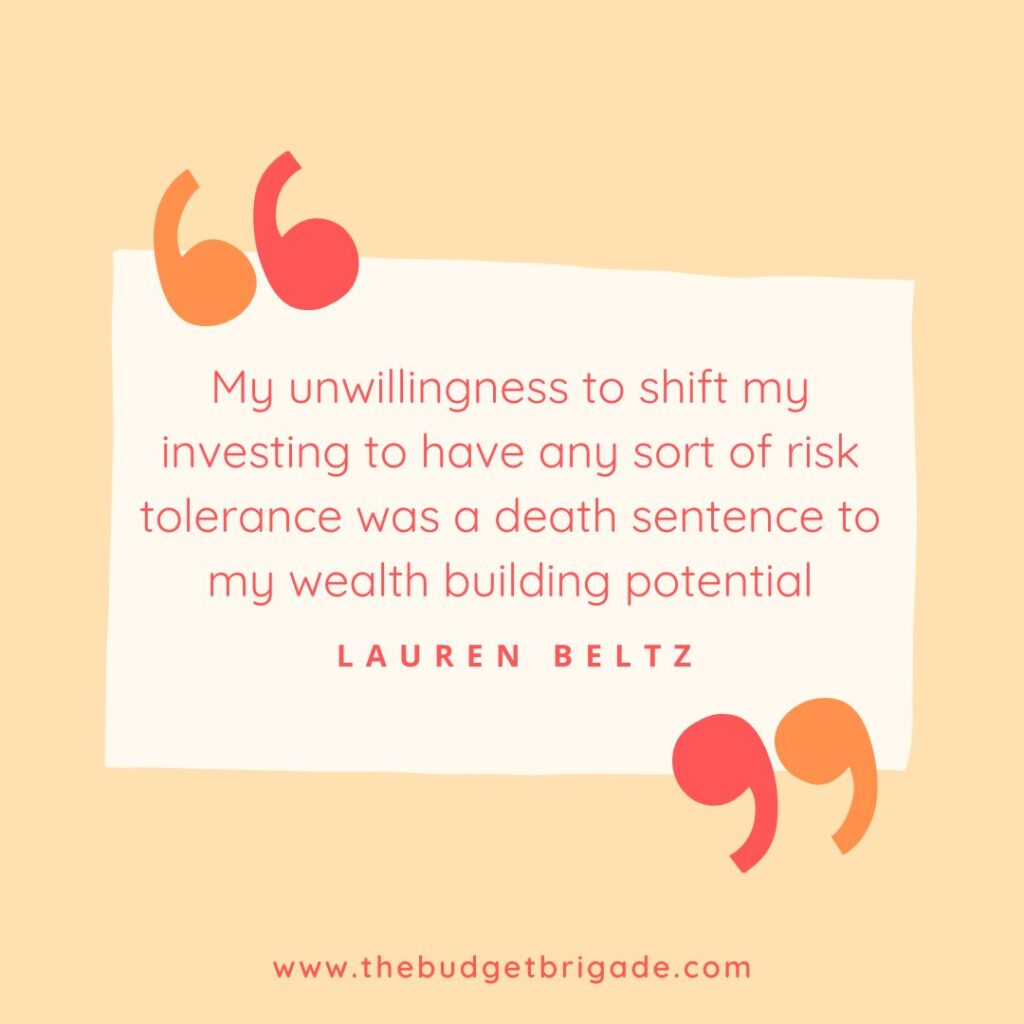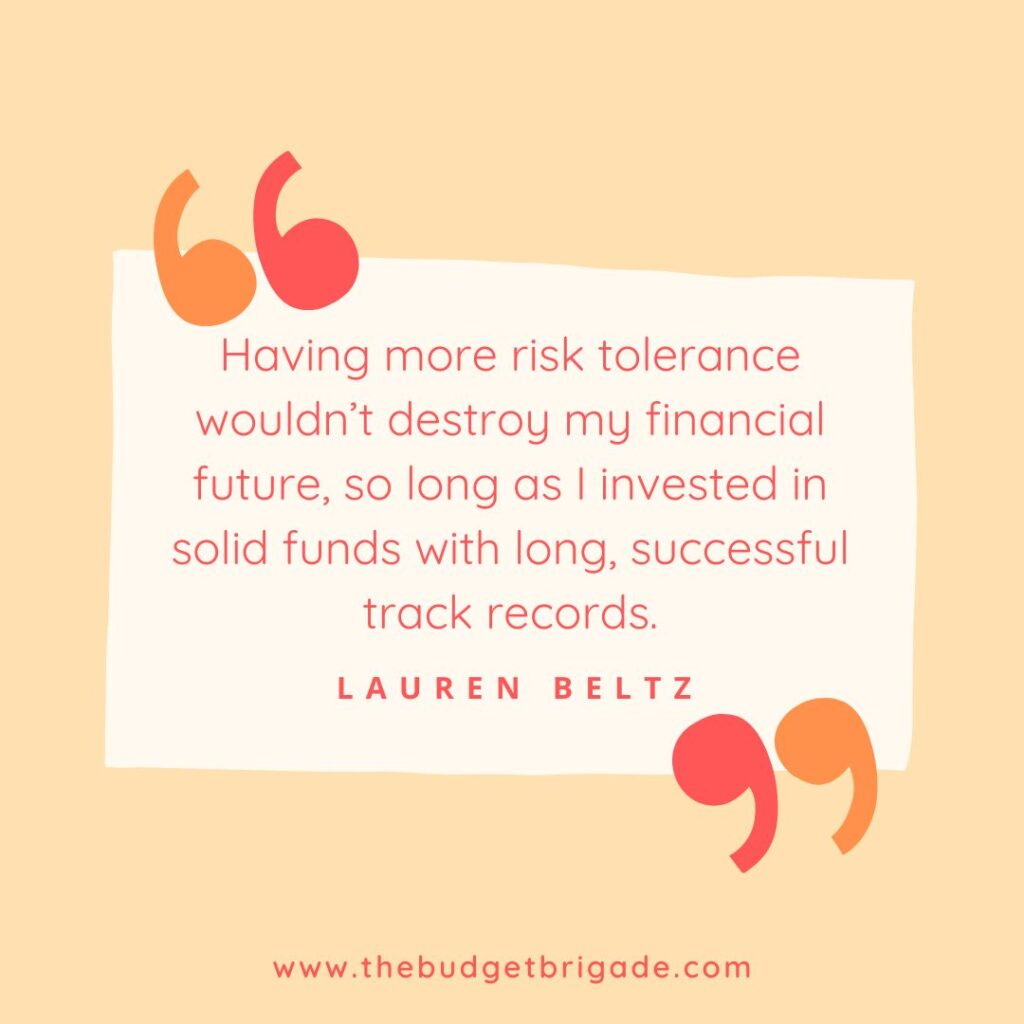Part of our FIRE ladder for financial freedom (rung 7) is sharing your journey with others as you climb to independence. We are big believers in sharing knowledge and helping others. We all do better when we succeed together. As such, we try to be transparent about what our keys to wealth have been, as well as what mistakes we’ve made that you might want to avoid. Today, I want to be vulnerable and share my regret about the biggest financial mistake I’ve made with the hope of saving you from repeating it.
I didn’t grow up in a wealthy household, but my mother instilled in me the importance of a Roth IRA at a young age. I was around thirteen when she helped me open my very first custodial Roth IRA account.
I was working in the family business, shredding papers, entering timesheets, and helping with some very basic bookkeeping and accounting. Shocker I grew up around numbers, I know.
Back in my day (cue my best peepaw voice), we didn’t have mobile deposits, so after each paycheck I got, my mom would help me write out a check for a portion of my wages. We took it down to Edward Jones and deposited it as a contribution to my Roth IRA.
At thirteen years old, I didn’t actually understand how the stock market worked or the power of compound interest. My “retirement plan” was to buy 5 for $20 used movies from Blockbuster. I was going to need a ton of entertainment when I had all this free time on my hands decades later!
When I sat down and discuss investments and asset allocation with my financial advisor (and we’ve talked about whether you need a financial advisor or not – I did as a teenager or I would have invested everything in Blockbuster stock), I was worried all that money I worked so hard to earn would disappear. After all, I was still reeling from the realization of how much of my paycheck disappeared to FICA and Social Security and income tax withholdings. I didn’t want this money I was investing to evaporate as well.
So when it came to my risk tolerance, I had none. I didn’t know the difference between a stock or a bond, but if bonds were more conservative, then bonds were where I wanted to be.
One of the top 10 financial tips we wish we’d learned earlier in our financial journey is to automate your savings (and, because of this regret, to spend some time learning and understanding investments). So once I got through surviving off PB&Js during my college internships and part-time jobs and landed my first “big girl” paycheck, I paid off my loans and made the goal to fully fund my Roth IRA.
As a side note, one of my high school and college part-time jobs was working at Edward Jones. A wise budget boss would have used the opportunity to learn as much as humanly possible. At sixteen, I was not the budget boss I am today. I was a teenager who like to read Michael Crichton novels and scream-sang to Linkin Park, much to my mom’s chagrin.
In my twenties, I hit my goal of fully funding my Roth IRA. But every time I sat down with my financial advisor and that question of risk tolerance came up, I set it and forget it. Those few thousand dollars it took to fully fund my Roth IRA at the time were a lot with my $30,000 salary. I didn’t want it to disappear. After all, I was going to need money in retirement to continue to build my “retirement plan” of movies, music, and books. CDs and DVDs would be around forever!
When my small business employer later added a 401(k) benefit, I jumped on the opportunity to up my investing game. My financial advisor helped me select funds and the asset allocation for each. And, for the first time, since my husband and I had a combined 6-figure income and he was way more aggressive with his risk tolerance, I allowed my FA to lower my risk aversion a teeny little bit.
It took until I reached my early 30s before I woke up and realized that my unwillingness to shift my investing to have any sort of risk tolerance was a death sentence to my wealth building potential.

Yes, I’d learned that Roth investing was a great opportunity at a young age.
Yes, I’d learned to pay myself first by treating my retirement like a bill and setting it up on auto draft.
But by investing so heavily in bonds versus stocks, I’d lost out on two decades of additional compound interest.
I can ramp up and save more each month going forward. I can change my asset allocation for future growth. But I’ll never be able to turn the clock back and get those two decades back.
I would find a way to educate myself about investing. Thirty-five-year-old Lauren would shake fifteen-year-old Lauren awake and slap a copy of A Random Walk Down Wall Street in front of her. You like to read?! Perfect! Put down Harry Potter and read this. Now!!!
So what finally woke me up and made me realize what a huge mistake I’d made? Quite simply, I’m competitive as fuck.
My husband didn’t open his Roth IRA and start investing in it until his mid-twenties. I had over a decade of extra investing in my Roth IRA over him, which equaled tens of thousands of dollars. Yet when I opened up our account and compared at the balances, I finally had a WTF moment. His account balance was within $5,000 less than mine.
That didn’t set well at all.
Asset allocation worked in his favor because he had way more risk tolerance. He invested his Roth IRA in funds that had greater growth track records than my puny little bond funds. Thus, he could invest less and have the same amount in retirement.
Well, hell. I wasn’t about to let his Roth IRA surpass mine. Over the past decade, his Roth IRA hadn’t crashed and burned because he was heavier in stocks versus bonds. Instead, it was growing, growing, growing.
Then change mine, I told him, to whatever his was invested in.
I needed this example to prove that having more risk tolerance wouldn’t destroy my financial future, so long as I invested in solid funds with long, successful track records. It was the catalyst for my character arc and my hero’s journey to financial independence.

If you find yourself in the same situation, I hope you can use my example and let it be the trigger you need now, instead of waiting another ten or fifteen years like I did.
The length of time you’re well invested in the stock market is one of the three primary factors that determine how much wealth building potential you had. Don’t wait and find that you have to play catch up.
Take a deep breath, do some research, and then set yourself up for success.
If you don’t know where to start, check out our complete 101 guide to the basics of investing. If you have a specific question about your unique situation, toss it out to the hive mind in our budgeting and personal finance Facebook group.
